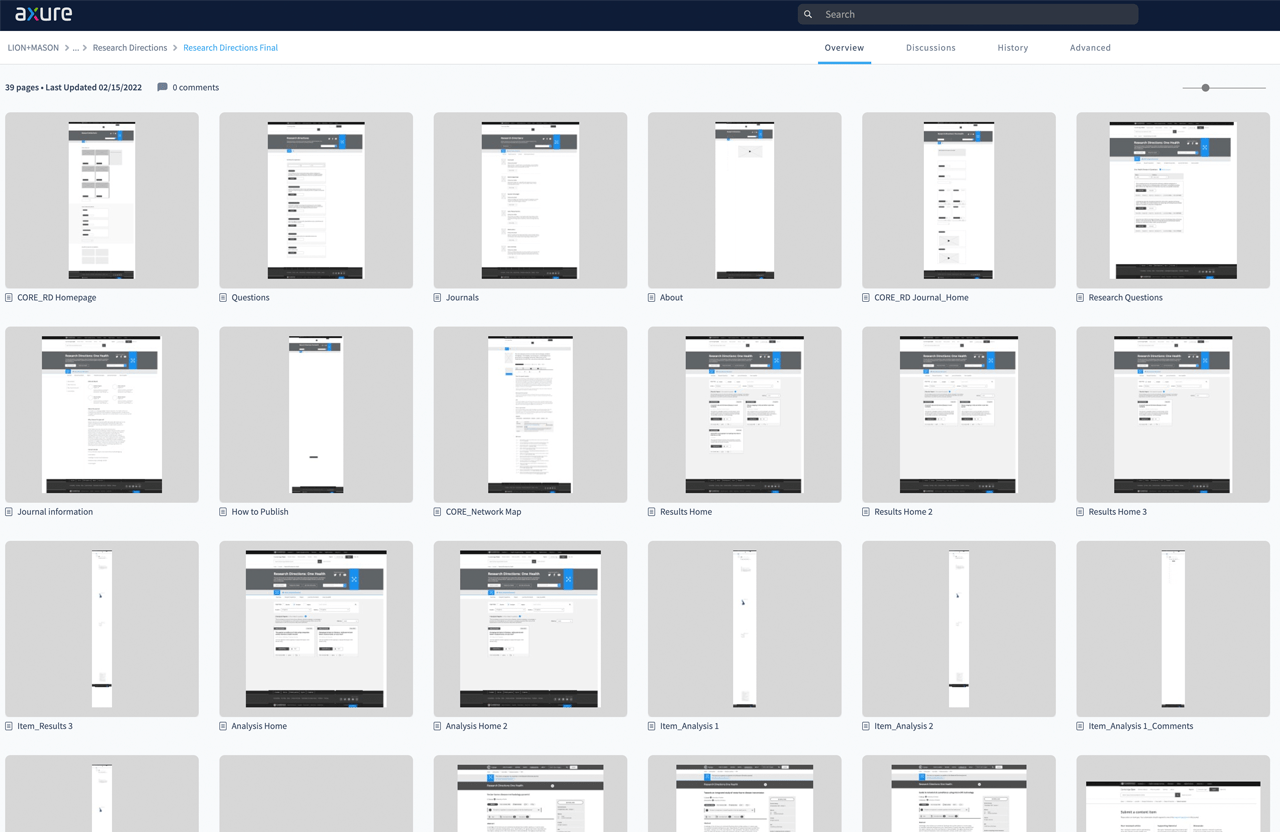Cambridge university press
Changing the world of academic publishing through digital modernisation
Overview
Cambridge University Press engaged LION+MASON to research, validate, and design a new concept for academic publishing: a research & collaboration platform for academic researchers.
The platform makes it easy for researchers to share early work and encourages collaboration throughout the research process.
LION+ MASON conducted a full end-to-end product design process, from initial discovery and user research, right through to high-fidelity designs and an atomic design system.
Client
Cambridge University Press
Industry
Higher Education
Length
8 weeks
Activities
- Competitor + Market Analysis
- User Research (Academic)
- Low-fi Wireframes / Prototyping
- User Testing
- High Fidelity Designs
- Design System

Full Immersion
We began by conducting stakeholder workshops with the Cambridge internal team to clarify specific project aims and objectives, and identify their target user base.
We created personas to quickly bring these different users to life and prioritise them based on their role, career stage, and research needs. This helped Cambridge to identify two primary user types; ‘Hands On Researchers’ and ‘Research Shapers’.
To complement this ‘internal view’, we carried out secondary research into the wider market for academic research tools, conducting a detailed competitor analysis of community collaboration platforms, looking beyond academia to draw inspiration from news & blogging platforms.

Academic User Research
Cambridge needed to validate the concept idea with working academic researchers involved in writing and publishing their own research. We planned and conducted 25 hours of long form interviews with researchers in STEM fields (Science, Technology, Engineering & Medicine) to explore their experience of the current research and publication process and gauge the appetite for a research platform.
Outcomes analysed in 2 ways……
Performed a thematic analysis of the research findings, highlighting key issues and themes.
Created user journeys of the current research & publication process, identifying pain points and opportunities for improvement.

Mapping, Architecture & Prototyping
Designed the information architecture for the new platform, and how it fits into the wider Cambridge digital ecosystem.
Mapped user journeys showing the different ways users can flow through the platform.
Created an interactive prototype to bring the concept to life. The standout feature is a unique ‘network map’ concept, which breaks down the traditional article format into its constituent parts, visualising the story of research from conception to publication.
Iterative User Testing
We planned and conducted two rounds of user testing of the platform with academic researchers, including regular cycles of iteration to refine the navigation, labels, copy and UI components.


Pixel Perfect Designs
We incorporated user feedback to create high-fidelity page designs for desktop and mobile.
The designs were delivered in an atomic design system, providing Cambridge with the flexibility to manage the platform in-house, and making it easy to accommodate future changes.


The latest insights on UX, UI & Product Design

UX Leeds 2024 Live event brings the user experience and product design community together for another enlightening afternoon
Due to popular demand we decided to host another live UX Leeds event as part of the 2024 Leeds Digital Festival. Four years ago we recognised the lack of UX and digital product design specific events in Leeds and decided to host our own. Following another successful annual event it is clear to see a…

The Role of Prototyping in UX Design: Turning Ideas into Interactive Realities
In UX design, bringing concepts to life requires more than just sketches and wireframes. This is where prototyping comes in. Prototyping bridges the gap between design and development, allowing you to test, iterate, and validate your ideas before committing to the final product. Let’s explore the role of prototyping in UX design and how it…
